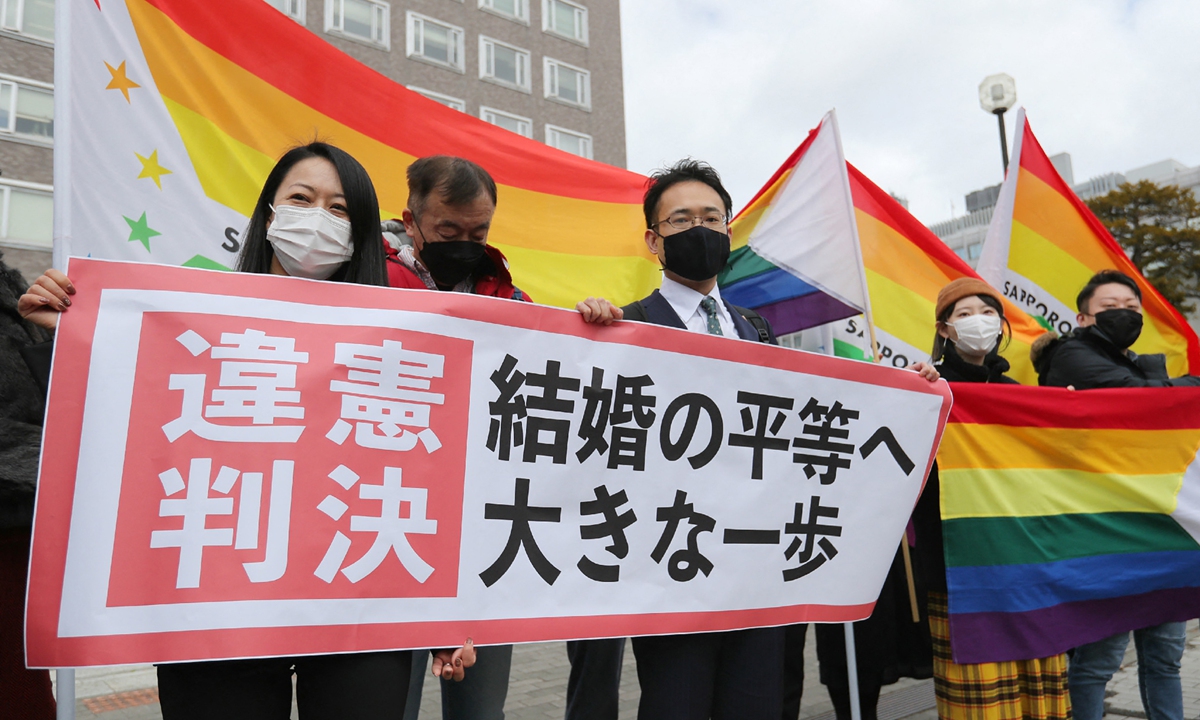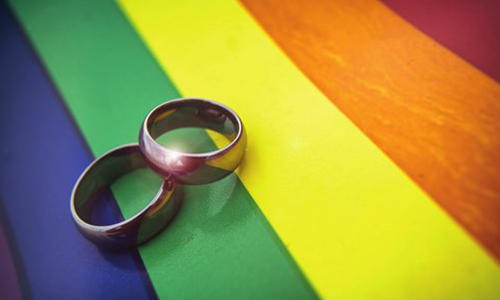Japan’s inability to recognize same-sex marriage unconstitutional: court

Supporters hold the "unconstitutional decision" flag in front of the Sapporo District Court in Sapporo, Japan on Wednesday. Photo: AFP
Japan's failure to recognize same-sex marriage is unconstitutional, a court ruled Wednesday, in a landmark first verdict on the issue that was welcomed with joy by campaigners.More than a dozen same-sex couples filed lawsuits in district courts across Japan in 2019 seeking recognition of gay marriage. Japan is the only Group of Seven nation that still does not recognize the unions.
The first of the cases to reach a verdict, in the northern city of Sapporo, sets the stage for more pressure on lawmakers and represents a significant win for equality activists.
The court said not providing ways for same-sex couples to "enjoy even a part of the legal effects that arise from marriage... violates article 14" of the constitution, which stipulates equality of all people under the law.
Opposition lawmaker Kanako Otsuji, one of the few openly gay Japanese politicians, said in a tweet she was "truly, truly happy" about the verdict.
"With this ruling, I urge the Diet, as the legislative branch of the government, to deliberate a proposed amendment to the civil code to make same-sex marriage possible," she wrote.
The plaintiffs had requested damages of 1 million yen ($9,000) per person, arguing they were being denied the same legal rights as heterosexual couples.
Their request for compensation was turned down by the court, which said lawmakers may have struggled to legislate on the issue as the matter has only become a topic of parliamentary debate in recent years.
But the wording of the verdict sparked celebrations outside the courthouse.
Lawyers for the plaintiffs, surrounded by rainbow flags, held up a sign declaring the ruling "a huge step towards equality in marriage."
"I was a bit disappointed when I heard the phrase 'turn down' in verdict, but later I couldn't stop my tears when the presiding judge said it lacks reasonable foundation and is discriminatory," said Ryosuke Kunimi, one of the plaintiffs.
AFP



